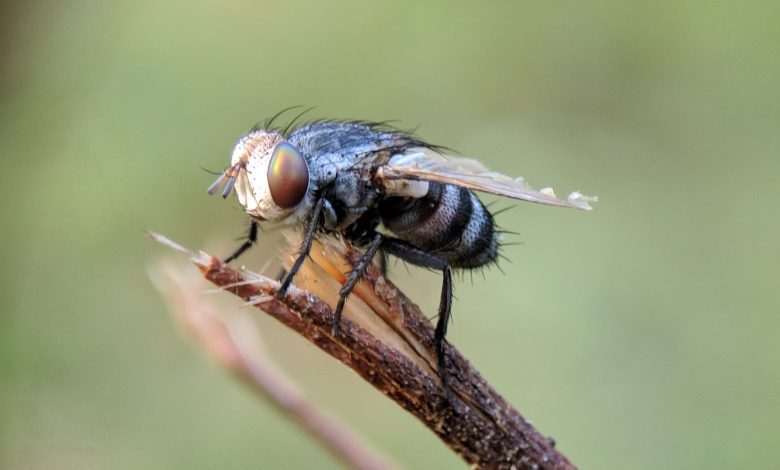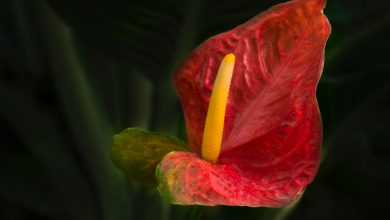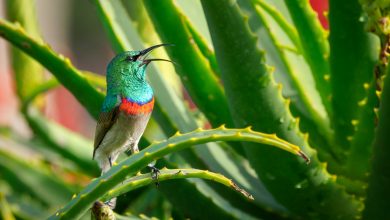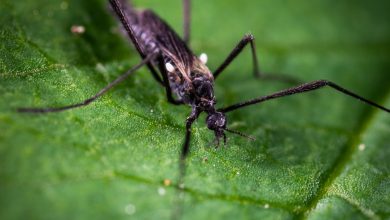Plants That Repel Flies

For most people, flies come first or second place on their list of most pesky insects, considering these perchy creatures don’t respect boundaries or anyone. You can find them in different locations around your house, disturbing your peace while effortlessly passing around germs. The good news is, some plants repel flies.
If you own a garden, you can attest to the fact that they gather in their numbers over there. Not to mention the kitchen area, once they perceive an alluring smell from there or other parts of your house, they waste no time in registering their presence.
Instead of exhausting your energy by using a flyswatter to get rid of these flies, or your hands to wave them off repeatedly, use houseplants to get a more desirable result. These plants are capable of repelling any type of fly making your home an uncomfortable environment. More so, small whiteflies, moths, and fruit flies can’t escape the efficacy of the plants listed below.
1. Mint
This herb has sweet mints, citrus mints, peppermint, chocolate mints, and spearmint as members of its large family. They all share a significant substance called mentha, which makes the plant repugnant to flies. The removal of the foliage oils makes them more potent. You may decide to plant any of these mints around you or rub its extracted oil on your skin. Regardless of the technique you employ, those flies will detest you sorely.
Mints grow very fast, as they self-pollinate through runners and occupy space easily. They don’t only keep flies, mice, and mosquitoes away, but serve as ingredients for foods and beverages. Moreover, they aid digestion.
2. Sweet Basil
Sweet basil emits a dry and fresh aroma that repels flies within its ambiance. By including this herb to the summer blooms in your patio pots, you’ll be successfully warding off flies from your vicinity. It makes a great company for your vegetable patch and helps keep your tomatoes and squash safe from parasitic insects. Another advantage of sweet basil is that it prevents the adverse association between your roses and bugs.
As an annual plant in warm climates, if allowed to flourish, the plant can produce seeds on its own. Moreover, you can purchase sweet basil during spring from your local garden center and grow it inside your home before transplanting it outdoors. The sweet-smelling plant is perfect for your indoor herb garden and can survive all seasons of the year.
3. Wormwood
This plant, otherwise known as absinthe, grows quickly and would make a great addition to your garden. Wormwood leaves have an organic substance which is useful as an insecticide. Cut, crush, and apply it immediately on your skin or clothing to repel flies. You can keep dried wormwood around any part of your house for a similar purpose.
Please note that it isn’t a legal ingredient for beverages in many countries due to its potency and the adverse effect it has on people who ingest it in large amounts. Therefore, seek a doctor’s recommendation before consuming this plant.
4. Bay Laurel
Bay laurel doubles as a food ingredient and insect deterrent. Its smooth looking leaves give your meals a pleasant smell and also prohibits mice, weevils, and other insects from your cupboard. It has a dry and fresh scent that repels flies during their season. Thus, you may place this plant near the entrance of your home to enjoy a long break from them.
Bay laurel has a great height and is an all seasonal warm-climate plant that performs poorly in cold weather. However, it’s perfect when planted in a pot and great for topiary, but should be kept inside during chilly weather. The plant grows slowly and can withstand cramped conditions, so there’s no need to repot it often. Endeavor to plant your bay laurel in fertile and well-drained soil during its formative years.
Put bay leaves with sprigs of rosemary together around your vicinity for a pleasant fragrance, and watch this perfect combination repel those troublesome flies.

5. Pennyroyal
Besides using pennyroyal as an ornament and deterrent to insects, you should apply caution while using it for any other purpose. By applying the oils from the freshly cut herb on your clothing or hats, you’ll be keeping flies at bay. However, swallowing the plant or its oil must be according to a doctor’s supervision.
Grow pennyroyal in your garden to deter bugs from your vulnerable greeneries. It’s a low-grower that can grow beneath or around your garden plants, thus serving as a repellant to keep pests away from them. Also, it’s a specie from the mint family; therefore, endeavor to relocate your pennyroyal plant during the fall season to avoid it becoming intrusive.
6. Lavender
Lavender grows well in a hot climate. Its foliage and blooms have pungent smells that ward off flies and other insects. Pluck the flowers for your cupboards, drawers, and closets to keep creepy sneaking insects at bay, while making your clothes smell sweetly.
Lavender is a plant that propagates easily. It has many varieties to suit your particular climate requirement and growing areas. It’s better to keep this plant in a pot, as it fulfills its purpose as an insect repellant much satisfactorily in such condition.
Refrain from keeping your potted plant outside during chilly weather or winter season because doing otherwise can kill the root of the plant. Instead, during winter, place the plant in a shed, cover the pot, or keep the pot plant facing a northern zone.
Lavender uses about three years to produce enough flower crops and attain full growth.
7. Catnip
Catnip has always been an appealing plant to felines. European farmers plant it around their houses and storehouses to ward off rodents. It can effectively repel insects and mice if positioned at the entrance of your home. It possesses silvery leaves, which serves beautification purposes too. Just like mint, it grows extensively. So we advise you keep an eye on it.
Rub the oil found in the catnip on your skin or cloth to serve as a deterrent to insects. If skin irritation occurs, discontinue use immediately. Moreover, because it allures cat, look for a means to keep your feline friend out of the way so that the plant can serve its purpose.
8. Tansy
Tansy produces oils you can extract to produce your spray. Rub the extracted oil on your body or the areas you occupy, or spray it around the entrance of your house and the window side where flies may target. The oil from the dried leaves can serve as a repellant spray. More so, it becomes more effective at sending those flies into exile than its fresh leaves counterpart due to the concentration of the oil.
To make this repellant spray, immerse your tansy leaves in hot water. And then cool and drain it in a spray bottle. You may decide to include other fly deterring oil, like lavender.
Although tansy is a beautiful and valuable plant to cultivate, it’s dangerous when used in large quantities. Animals may become sick after feeding on this plant in large amounts.
Tansy reproduces through its root. Therefore, keep it in a pot or any container that prevents animals from reaching out to the bottom of the plant.

9. Citronella Grass
Citronella grasses are often everywhere, serving ornamental purposes in warm zones within the United States. It grows well in the patio planter if given appropriate attention. Keep your citronella grass indoors during winters.
The plant leaves cannot repel flies or insects, but its oil extract would do that effectively, considering the pungent smell it emits when crushed. Cut the fronds of the plant and apply it on your skin or clothing to ward off insects. You might want to keep in mind that it becomes less effective after two hours. Thus, endeavor to keep it handy. You may create a spray also from the antibacterial and antifungal oil extract of the leaves.
10. Rosemary
This plant remains evergreen in different growing zones if given the required attention and protection. When planting rosemary, give it enough room. This is because it consumes space; it grows up to three to four feet in length, while its width is up to five feet. With good radiation, rosemary can thrive in well-drained planters.
As a scented herb, it gives off a pleasant smell that makes it suitable for adding flavor to various meals and drinks. This same quality also serves as an excellent repellant for flies.
Most gardeners in the north often grow rosemary as an annual plant. However, its growth is satisfactory during winter too. In areas like the northern region beyond zone five, we advise you to transfer your plant indoor if it’s unprotected outside, while there’s exceptionally constant cold weather in winter.
You may place fresh or dried rosemary around your house to deter flies. Try mixing this plant with bay leaves for an effective result in chasing away flies, mosquitoes, and cats.
By planting any of these plants around your house or using them on your skin and clothes, you’ll no longer have to tolerate those pesky little-winged creatures. Extract their essential oils and turn them into a spray for a more potent result and say goodbye to those flies buzzing around your ears and home.



